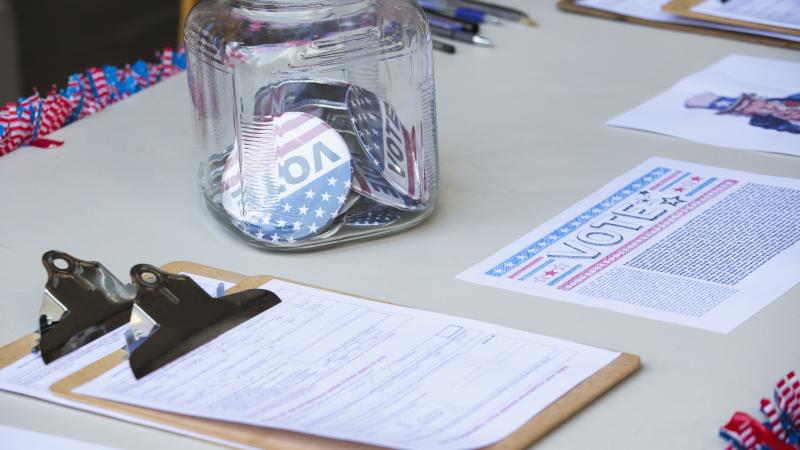Fifteen states demand Google, Apple relabel TikTok for ‘mature’ content
“The TikTok app contains frequent and intense alcohol, tobacco, and drug use or references, sexual content, profanity, and mature/suggestive themes,” the letters state.
(The Center Square) — Attorneys general from 15 states have demanded Apple and Google increase the age-appropriate rating for social media app TikTok from “teen” to “mature” in their online stores or face possible legal action.
The demand was made in nearly identical letters to Apple and Google sent Dec. 13 by Montana Attorney General Austin Knudsen, co-signed by attorneys general from Alabama, Arkansas, Florida, Georgia, Indiana, Kentucky, Louisiana, Mississippi, North Dakota, Oklahoma, South Carolina, Texas, Utah and Virginia.
Currently, Apple’s App Store labels TikTok as appropriate for “Age 12+ Years Old,” and Google labels it “T” for “Teen” appropriate. Both ratings mean, “Content is generally suitable for ages 13 and up. May contain violence, suggestive themes, crude humor, minimal blood, simulated gambling and/or infrequent use of strong language,” according to the company’s websites.
The AGs contend the content available on TikTok goes well beyond those guidelines and is not suitable for children under age 17.
“The TikTok app contains frequent and intense alcohol, tobacco, and drug use or references, sexual content, profanity, and mature/suggestive themes,” the letters state, drawing the conclusion “The TikTok app can only plausibly qualify for an ‘M’ for ‘Mature’ rating.”
The Center Square requested comments from both Apple and Google but did not receive a reply.
The move comes amid growing pressure on TikTok by state governments over alleged deceptive practices and data security.
Indiana Attorney General Todd Rokita filed a pair of lawsuits against the app maker on Dec. 8, alleging the company has engaged in deceptive practices aimed at minors in violation of state law by luring children to the platform with misleading messaging about the site’s content, and it deceives consumers into believing their personal information is protected from the Chinese government and Communist Party.
TikTok is owned by the Chinese company ByteDance Ltd., also named in the suits.
Also Dec. 8, Texas Gov. Greg Abbott ordered all Texas state agencies to ban the use of TikTok on any government-issued electronic devices, alleging a growing threat posed by the platform in exposing critical information to the Chinese government.
Maryland, Oklahoma, South Dakota, South Carolina, Alabama, North Dakota and Utah have subsequently banned use of the app on state-owned electronic devices.
According to Apple’s App Store, TikTok collects information and “identifiers” in order to track each user, and collects other data specifically linked to the user’s identity, including contact information, purchases, financial information, contacts, search history, browsing history and data usage.
As for Apple and Google, the AGs stated both tech giants are partly responsible for any harm caused by the alleged mislabeling of TikTok.
The AGs write that Apple and Google share “the responsibility to ensure that apps like TikTok display an accurate age rating to consumers. When parents are deceived into letting their kids download TikTok, there are real consequences. Exposure to drug, alcohol, and tobacco content on social media makes kids more likely to use or experiment with those illicit substances in real life. And exposure to sexual content on TikTok can lead to pornography addiction and even the sexual exploitation of kids by online predators.”
The app has been downloaded more than 1 billion times from Google, according to Google Play, and about 70 million times from Apple through April 2002, according to 9to5Mac.
The letters conclude with the warning that if Apple and Google do not change their age ratings for TikTok, the attorneys general reserve the right to take legal action against both vendors, including litigation and civil penalties.
A spokesperson for TikTok said earlier this month that concerns by state leaders “are largely fueled by misinformation about our company,” The Washington Post reported. The Center Square requested additional comment from ByteDance but none was received.














